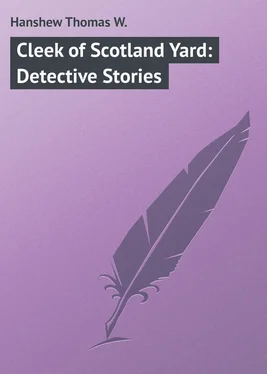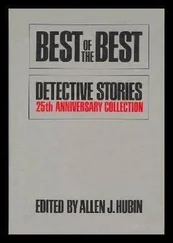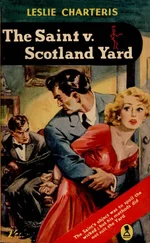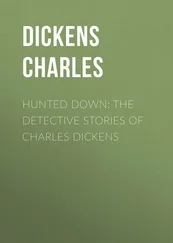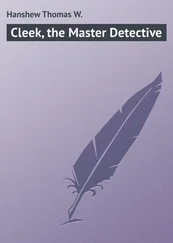Thomas Hanshew - Cleek of Scotland Yard - Detective Stories
Здесь есть возможность читать онлайн «Thomas Hanshew - Cleek of Scotland Yard - Detective Stories» — ознакомительный отрывок электронной книги совершенно бесплатно, а после прочтения отрывка купить полную версию. В некоторых случаях можно слушать аудио, скачать через торрент в формате fb2 и присутствует краткое содержание. Жанр: Классический детектив, foreign_detective, foreign_prose, на английском языке. Описание произведения, (предисловие) а так же отзывы посетителей доступны на портале библиотеки ЛибКат.
- Название:Cleek of Scotland Yard: Detective Stories
- Автор:
- Жанр:
- Год:неизвестен
- ISBN:нет данных
- Рейтинг книги:4 / 5. Голосов: 1
-
Избранное:Добавить в избранное
- Отзывы:
-
Ваша оценка:
- 80
- 1
- 2
- 3
- 4
- 5
Cleek of Scotland Yard: Detective Stories: краткое содержание, описание и аннотация
Предлагаем к чтению аннотацию, описание, краткое содержание или предисловие (зависит от того, что написал сам автор книги «Cleek of Scotland Yard: Detective Stories»). Если вы не нашли необходимую информацию о книге — напишите в комментариях, мы постараемся отыскать её.
Cleek of Scotland Yard: Detective Stories — читать онлайн ознакомительный отрывок
Ниже представлен текст книги, разбитый по страницам. Система сохранения места последней прочитанной страницы, позволяет с удобством читать онлайн бесплатно книгу «Cleek of Scotland Yard: Detective Stories», без необходимости каждый раз заново искать на чём Вы остановились. Поставьте закладку, и сможете в любой момент перейти на страницу, на которой закончили чтение.
Интервал:
Закладка:
When still short, by thirty yards or so, of its flowered and willow-fringed brim, he came upon a quaint little diamond-paned, red-roofed, low-eaved house set far back from the shore, with a garden full of violets and primroses and flaunting crocuses in front of it, and a tangle of blossoming things crowding what once had been a bower-bordered bowling green in the rear.
“Queen Anne, for a ducat!” he commented as he looked at the place and took in every detail from the magpie in the old pointed-topped wicker cage hanging from a nail beside the doorway to the rudely carved figure of a mermaid over the jutting, flower-filled diamond-paned window of the bar parlour with its swinging sashes and its oak-beam sill, shoulder high from the green, sweet-smelling earth.
“How the dickens does he ferret out these places, I wonder? And what fool has put his money into a show like this in these days of advancement and enterprise? Buried away from the line of traffic ashore and shut in by trees from the river. Gad! they can’t do a pound’s worth of business in a month at an out-of-the-way roost like this!”
Certainly, they were not doing much of it that day; for, as he passed through the taproom, he caught a glimpse of the landlady dozing in a deep chair by the window, and of the back of a by-no-means-smartly-dressed barmaid – who might have been stone deaf for all notice she took of his entrance – standing on a stool behind the bar dusting and polishing the woodwork of the shelves. The door of the bar parlour was open, and through it Narkom caught a glimpse of a bent-kneed, stoop-shouldered, doddering old man shuffling about, filling match-boxes, wiping ash trays, and carefully refolding the rumpled newspapers that lay on the centre table. That he was not the proprietor, merely a waiter, the towel over his arm, the shabby old dress coat, the baggy-kneed trousers would have been evidence enough without that added by the humble tasks he was performing.
“Poor devil! And at his age!” said Narkom to himself, as he noted the pale, hopeless-looking, time-worn face and the shuffling, time-bent body; then, moved by a sense of keen pity, he walked into the room and spoke gently to him.
“Tea for two, uncle – at a quarter-past five to the tick if you can manage it,” he said, tossing the old man a shilling. “And say to the landlady that I’d like to have exclusive use of this room for an hour or two, so she can charge the loss to my account if she has to turn any other customers away.”
“Thanky, sir. I’ll attend to it at once, sir,” replied the old fellow, pocketing the coin, and moving briskly away to give the order. In another minute he was back again, laying the cloth and setting out the dishes, while Narkom improved the time of waiting by straying round the room and looking at the old prints and cases of stuffed fishes that hung on the oak-panelled walls.
It still wanted a minute or so of being a quarter-past five when the old man bore in the tea tray itself and set it upon the waiting table; and, little custom though the place enjoyed, Narkom could not but compliment it upon its promptness and the inviting quality of the viands served.
“You may go,” he said to the waiter, when the man at length bowed low and announced that all was ready; then, after a moment, turning round and finding him still shuffling about, “I say you may go!” he reiterated, a trifle sharply. “No, don’t take the cosy off the teapot – leave it as it is. The gentleman I am expecting has not arrived yet, and – look here! will you have the goodness to let that cosy alone and to clear out when I tell you? By James! if you don’t – Hullo! What the dickens was that?”
“That” was undoubtedly the tingle of a handful of gravel against the panes of the window.
“A sign that the coast is quite clear and that you have not been followed, dear friend,” said a voice – Cleek’s voice – in reply. “Shall we not sit down? I’m famishing.” And as Narkom turned round on his heel – with the certainty that no one had entered the room since the door was closed and he himself before it – the tea cosy was whipped off by a hand that no longer shook, the waiter’s bent figure straightened, his pale, drawn features writhed, blent, settled into placid calmness and – the thing was done!
“By all that’s wonderful – Cleek!” blurted out Narkom, delightedly, and lurched toward him.
“Sh-h-h! Gently, gently, my friend,” he interposed, putting up a warning hand. “It is true Dollops has signalled that there is no one in the vicinity likely to hear, but although the maid is both deaf and dumb, recollect that Mrs. Condiment is neither; and I have no more wish for her to discover my real calling than I ever had.”
“Mrs. Condiment?” repeated Narkom, sinking his voice, and speaking in a tone of agitation and amazement. “You don’t mean to tell me that the old woman you employed as housekeeper when you lived in Clarges Street is here?”
“Certainly; she is the landlady. Her assistant is that same deaf and dumb maid-of-all-work who worked with her at the old house, and is sharing with her a sort of ‘retirement’ here. ‘Captain Burbage’ set the pair of them up in business here two days after his departure from Clarges Street and pays them a monthly wage sufficient to make up for any lack of ‘custom.’ All that they are bound to do is to allow a pensioner of the captain’s – a poor old half-witted ex-waiter called Joseph – to come and go as he will and to gratify a whim for waiting upon people if he chooses to do so. What’s that? No, the ‘captain’ does not live here. He and his henchman, Dollops, are supposed to be out of the country. Mrs. Condiment does not know where he lives – nor will she ever be permitted to do so. You may, some day, perhaps – that is for the future to decide; but not at present, my dear friend; it is too risky.”
“Why risky, old chap? Surely I can come and go in disguise as I did in the old days, Cleek? We managed secret visits all right then, remember.”
“Yes – I know. But things have changed, Mr. Narkom. You may disguise yourself as cleverly as you please, but you can’t disguise the red limousine. It is known and it will be followed; so, until you can get another of a totally different colour and appearance I’ll ring you up each morning at the Yard and we can make our appointments over your private wire. For the present we must take no great risks. In the days that lie behind, dear friend, I had no ‘tracker’ to guard against but Margot, no enemies but her paltry crew to reckon with and to outwit. In these, I have many. They have brains, these new foes; they are rich, they are desperate, they are powerful; and behind them is the implacable hate and the malignant hand of – No matter! You wouldn’t understand.”
“I can make a devilish good guess, then,” rapped in Narkom, a trifle testily, his vanity a little hurt by that final suggestion, and his mind harking back to the brief enlightening conversation between Margot and Count Waldemar that night on the spray-swept deck of the Channel packet. “Behind them is ‘the implacable hate and the malignant hand’ of the King of Mauravania!”
“What utter rubbish!” Cleek’s jeering laughter fairly stung, it was so full of pitying derision. “My friend, have you taken to reading penny novelettes of late? A thief-taker and a monarch! An ex-criminal and a king! I should have given you credit for more common sense.”
“It was the King of Mauravania’s equerry who directed that attempt to kill you by blowing up the house in Clarges Street.”
“Very possibly. But that does not incriminate his royal master. Count Waldemar is not only equerry to King Ulric of Mauravania, but is also nephew to its ex-Prime Minister – the gentleman who is doing fifteen years’ energetic labour for the British Government as a result of that attempt to trap me with his witless ‘Silver Snare.’”
Читать дальшеИнтервал:
Закладка:
Похожие книги на «Cleek of Scotland Yard: Detective Stories»
Представляем Вашему вниманию похожие книги на «Cleek of Scotland Yard: Detective Stories» списком для выбора. Мы отобрали схожую по названию и смыслу литературу в надежде предоставить читателям больше вариантов отыскать новые, интересные, ещё непрочитанные произведения.
Обсуждение, отзывы о книге «Cleek of Scotland Yard: Detective Stories» и просто собственные мнения читателей. Оставьте ваши комментарии, напишите, что Вы думаете о произведении, его смысле или главных героях. Укажите что конкретно понравилось, а что нет, и почему Вы так считаете.
